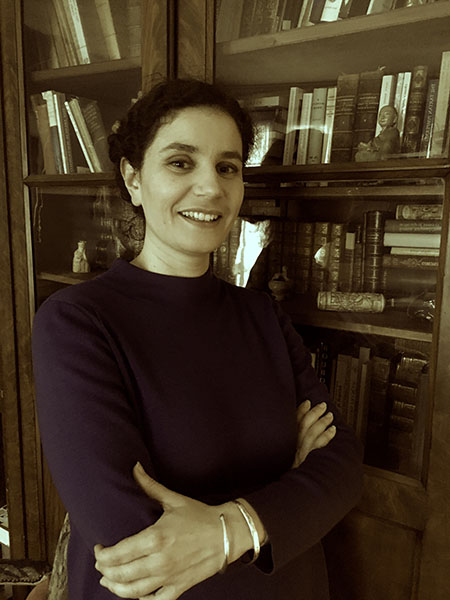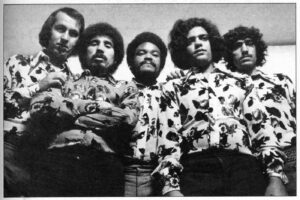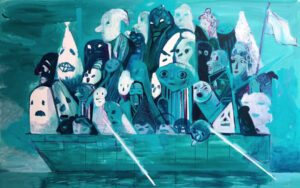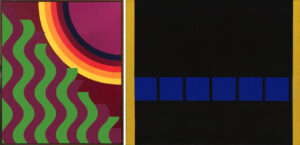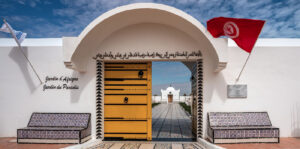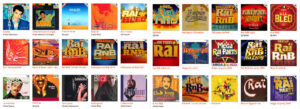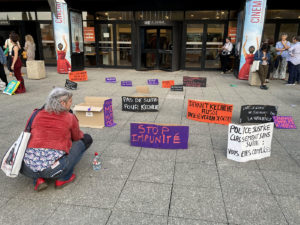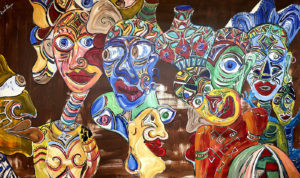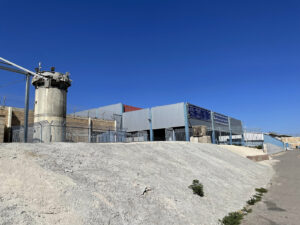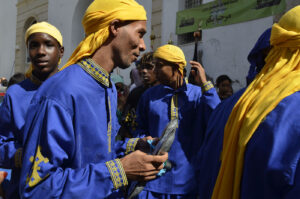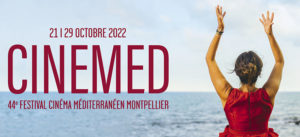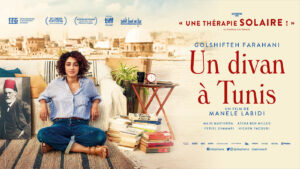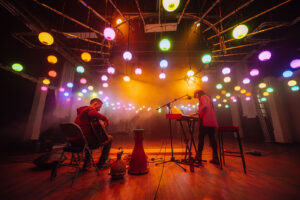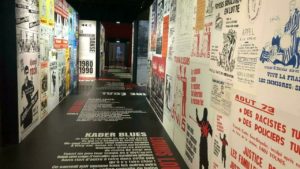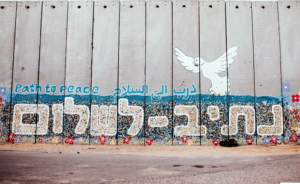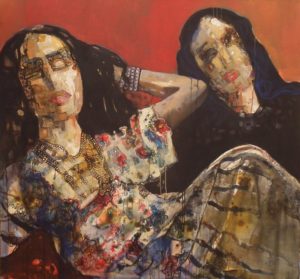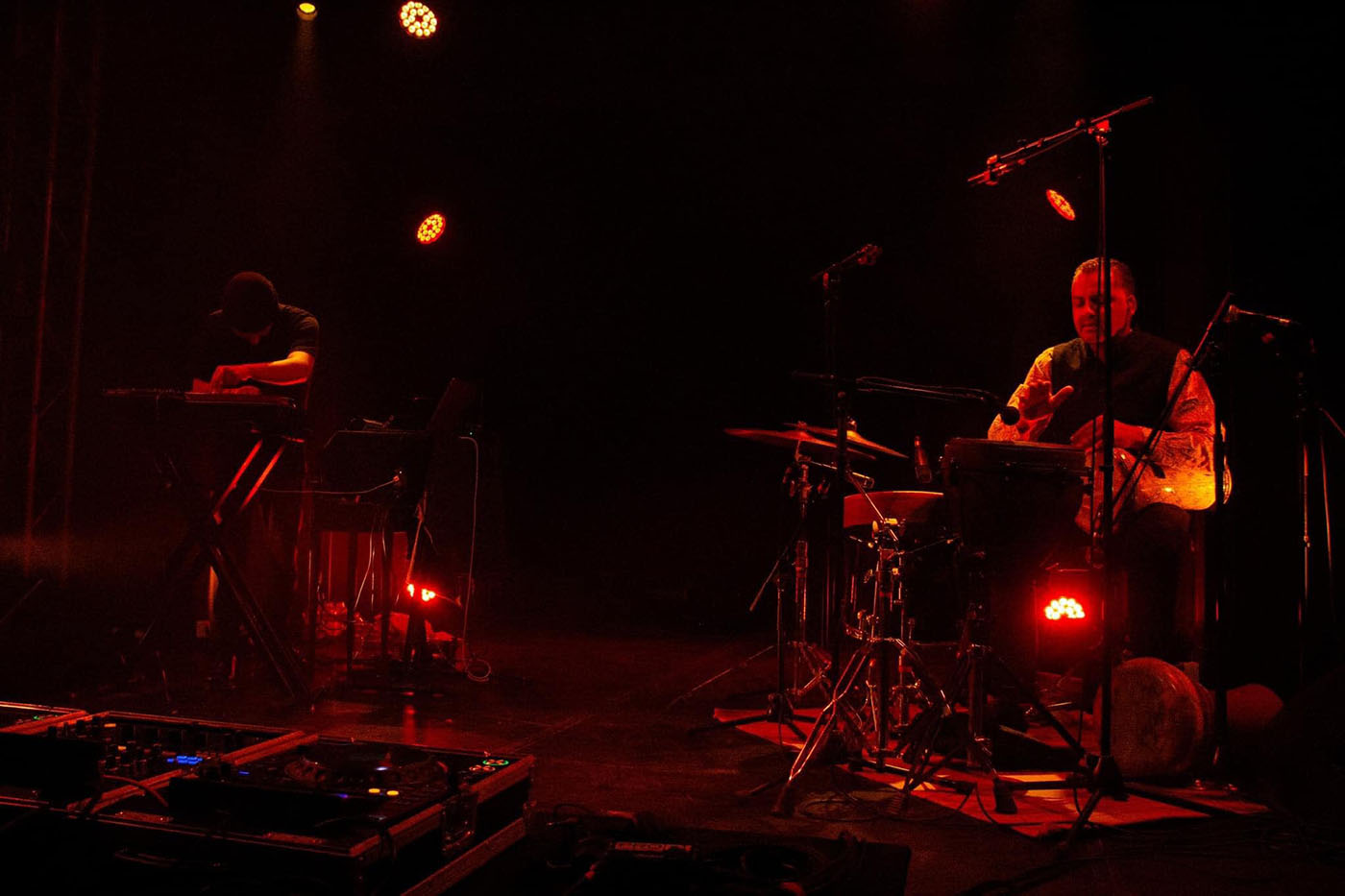
Migration has always inspired Imed Alibi, and the political models with fixed borders that the European imperial powers have imposed through their presence in North Africa do not correspond well to the social and cultural realities of the region.
Melissa Chemam
One of the most exciting productions to come out of Tunisia this year thus far is the result of a two-man band and their new album, Frigya, mixing traditional percussion and electronica. To put together Frigya, the Tunisian percussionist and event director Imed Alibi collaborated with composer and multi-instrumentalist Khalil Epi (aka Khalil Hentati), also of Tunisian origin.
Released on Shouka Records, this percussive project combines traditional North African music with electronic sounds, in such an innovative way that it struck my ears at the first listen. Full of energy, fast-paced and cutting edge, the album — which remains mostly instrumental but also incorporates a remix of Arabic vocals — spins the work of Imed Alibi in a fresh, youthful direction.
After a French tour earlier this summer, Imed Alibi returned to the south of his native Tunisia, where I was able to reach him by phone, despite the heat wave and the problems of internet connection that it induces in the region. “This project was born during a residency in Occitan music at the Silo, which I undertook in the Occitanie region,” he explains. Imed lives between Montpellier and Tunis. “I proposed this collaboration with Khalil, whom I had met in Paris, at the ICI (Institute of Islamic Cultures), to undertake research around African sounds. That gave way to this electro-percussive duo. Then Covid struck and we had to continue working at a distance. I recorded in Tunis on my side, then we were able to meet again to record together in Lyon, in France, and the disc was released on December 3, 2021. The goal was then to be able to perform on stage with Frigya.”
Imed picked up these Mediterranean and African percussive sounds early on in Tunisia, first in a self-taught way at the age of 12, on North African derboukas, and then on instruments from the Middle East. At 22, he was able to come to France to study English literature in Montpellier, where he says he explored métissage or cultural fusion, rubbing shoulders with Senegalese musicians, Cubans and others. After settling in France, he then tried percussion from around the world. In 2019, he was invited to return to Tunisia to direct the Musical Days of Carthage, dedicated to supporting young talent. He was later appointed director of the International Festival of Carthage.
“When I say ‘Africa’ I know it’s a very broad word,” he says. “I’m thinking mostly of North African percussion and Tunisia in particular, which is often absent from this kind of mix of Middle Eastern sounds and electronic music. It is often Egypt that is present. But I know from experience that Tunisian percussion is very rich. As Khalil is also of Tunisian origin, it helped us with the soundscape; he worked in a very delicate way.”
Alibi is far from being a neophyte with these sonic mixes. He is rather a master, having collaborated for years with the Arab rock group the Boukakes, as well as the Tunisian singer Emel Mathlouthi, the late French-Algerian Rachid Taha, the Belgian singer of Egyptian-English origin, Natacha Atlas, the Belgian Tuareg rock group of Nigerian origin, Kel Assouf, and the Reunionese group, Ziskakan.
For his previous solo album, Safar, Imed worked with musicians Stéphane Puech and Zied Zouari, and as producer of the British guitarist Justin Adams (himself a collaborator of Robert Plant and the Malian Touaregs of Tinariwen, and musicians of the jazz fusion project JuJu).
“There, the goal was not so much to aim for authenticity,” explains Imed. “But I hear a lot of clichés in Western music productions about so-called ‘Oriental’ music, which is obviously a very vague term for a very prolific and varied body of music. Moreover, the word ‘Orient’ changes its meaning according to whether it is used in Great Britain, France, Pakistan, or West Africa… And musically, all these influences can be found there for historical and cultural reasons. The Orient is Palestine, Lebanon but also mythical groups with very good mixes based in the United States, Canada, or England, like the Transglobal Underground.”
The latter is indeed an English group of “electro-world” music, specialized in a fusion of Western, Asian and African musical styles.
Alibi’s career has been nourished by all these creative encounters, from the Boubakes (whom Rachid Taha called “the worthy heirs of Carte de Séjour,’ his flagship group of the 1980s), with whom Imed Alibi played and toured for nine years, to Emel Mathlouthi and the superb Nantes-based trip-hop/world music group Orange Blossom, whose hypnotic songs in Arabic have toured the world over the last decade.
“For my first solo album, Salhi,” adds Imed, “in 2014, I had already collaborated with many musicians, including Justin, and created cinematic sounds in this genre, augmented with percussion, and sounds from Sufi jazz, working with Tunisian jazz singer Michel Troudi and French trumpeter Michel Marre.”
For Frigya, he therefore wanted to put his Africa back in the spotlight. “Frigya is one of the ancient names of the continent in Tunisia, in an ancient dialect,” he reveals, “as well as the name of one of the regions of Tunisia. All the titles mention a part of our heritage and our cultures, like ‘Hattaya,’ which is the name of one of our Bedouin tribes, a title that refers to the notion of transhumance, a symbol of migrations and of these exchanges of rhythms that have made our music.”
In fact, this title reminds me deeply of the cassette of Kabyle percussion that my father liked to play for us every time he drove my sister and my mother and me out of Paris…
Imed admits that migration has always inspired him, and that the political models with fixed borders that the European imperial powers have imposed through their presence in North Africa do not correspond well to the social and cultural realities of the region. Fortunately, the creation of music allows him to rediscover this sense of travel, displacement, and mixing. “With my music,” he adds, “I can travel to many festivals, from Berlin to London, and even perform in clubs, which allows one to peel away the ‘world music’ label and evolve authentically.”
What are his plans now for the next few months? “Life started again very late for us musicians,” he rightly insists, “only in March 2022! Before that date, stand-up concerts were not possible during the two years of Covid, and restrictions may be imposed again… So, we have to go slowly. We want more live dates for Frigya. After that, at the end of October, I plan to launch a new project, with an Afghan musician, and an Iranian, at the Cité de la Musique in Marseille. It will be a residency with the Afghan Ibrahim Ibrahimi and musicians displaced by conflicts. Of course, the main obstacle for this kind of music is not having a stable record company, nor a tour manager, so we launch project by project and then we see. The issue of visa limitations is also a problem: many recording and performance structures are in Europe, but a real ‘artist’ visa has yet to be put in place to allow musicians to access them.”
Imed, who can go back to Montpellier, where he lives half of the year, intends to continue to try to bring along his musicians, and to make his music travel.
With the show created to launch the album, the two musicians performed at the Flèche d’Or in Paris in March, then at the Sucre in Lyon, in Marseille on June 10 and on June 21 in Tunis, for the Fête de la Musique. And they plan to continue to bring this exciting project to life, notably in Bordeaux on October 1st, then in Lisbon on October 22, as part of the WOMEX (Worldwide Music Expo) festival to be held from October 19 to 23 in the Portuguese capital.



